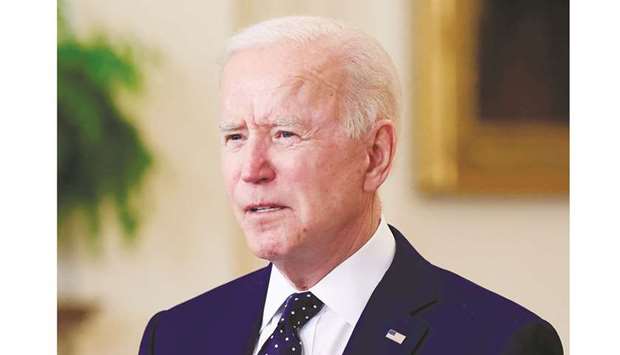The Biden administration said yesterday that it will invest $1.7bn to help states and the US Centres for Disease Control and Prevention (CDC) fight coronavirus (Covid-19) variants that are rapidly spreading across the United States.
The investment, which will be part of President Joe Biden’s $1.9tn American Rescue Plan, will improve detection, monitoring, and mitigation of these variants by scaling up genomic sequencing efforts – a key step in containing the spread, the White House said.
“The original strain of Covid-19 comprises only about half of all cases in America today. New and potentially dangerous strains of the virus make up the other half,” the White House said in a statement.
In early February, US laboratories were only sequencing about 8,000 Covid-19 strains per week.
Since then the administration has invested nearly $200mn to increase genomic sequencing to 29,000 samples per week – an effort that will get a boost with the new funding.
The investment will be broken down into three areas: $1bn to expand genomic sequencing, $400mn to help build six research centres for genomic epidemiology and $300mn to build a national bioinformatics infrastructure – which will help build a repository of data.
The first portion of the funding will be distributed in early May and the next round will be invested over the coming several years, the White House said.
The White House also offered a state-by-state breakdown of the funds with California receiving over $17mn, Texas over $15mn, and Florida over $12mn.
An analysis by the Washington Post in December found the United States was 43rd in the world in its ability to sequence coronavirus cases.
This month the variant first detected in the United Kingdom became the most dominant version of the coronavirus.
There are also fears about the rise of other variants, such as those first found in South Africa and in Brazil, which are better able to evade antibodies made in response to the original strain.
Vaccine makers are currently testing boosters tailored to variants and they could be made available towards the end of the year.
A White House official said on Thursday that the United States is preparing for the possibility that a booster shot will be needed between nine to 12 months after people are initially vaccinated against Covid-19.
Also, Pfizer Incorporated chief executive Albert Bourla said people will “likely” need a third booster dose of Covid-19 vaccines within 12 months and could need annual shots.
The United States had administered 198,317,040 doses of Covid-19 vaccines in the country as of Thursday morning and distributed 255,400,665 doses, according to the CDC.

Biden’s administration has already invested nearly $200mn to increase genomic sequencing
